This article was co-authored by Laura Marusinec, MD. Dr. Marusinec is a board certified Pediatrician at the Children's Hospital of Wisconsin, where she is on the Clinical Practice Council. She received her M.D. from the Medical College of Wisconsin School of Medicine in 1995 and completed her residency at the Medical College of Wisconsin in Pediatrics in 1998. She is a member of the American Medical Writers Association and the Society for Pediatric Urgent Care.
There are 34 references cited in this article, which can be found at the bottom of the page.
This article has been viewed 83,821 times.
Involuntary nighttime bedwetting (nocturnal enuresis) in older children and teenagers is more common than most people think, affecting between one and two percent of fifteen-year olds.[1] Contributing factors include infections, family history, diabetes, and certain medications. Bedwetting can present significant psychological and social issues for both older children and their parents, but the right approach and treatments can help.
Steps
Evaluating the Issue
-
1Seek information on the condition. Bedwetting can be divided into primary or secondary enuresis. Someone with primary enuresis has wet the bed since she was an infant, and has never had urinary continence for more than six months. Secondary enuresis occurs after at least six months of urinary continence.[2]
- Nocturnal enuresis is three times more common than daytime wetting and affects 2.8 percent of older children. It occurs three times more often in boys. Secondary causes account for less than 25 percent of cases.[3]
- Some young adults who have daytime bladder issues, including an overactive bladder, may also experience nocturnal enuresis.[4]
-
2Identify possible causes. If a child has parents who experienced nighttime incontinence, they have a 40–77% chance of having bedwetting problems also. Other risk factors include delayed physical maturation, constipation, overactive bladder, small bladder capacity, problems with certain hormones (including antidiuretic hormone), as well as social and emotional stress.[5]
- Events involving emotional distress such as a move to a new house or school, or other major life event, may trigger bedwetting.[6]
- Sexual abuse can also cause the onset of secondary enuresis.[7] If you suspect your child is a victim, seek expert help with your physician or through a sexual abuse and assault resource agency right away.[8]
- Keep a calendar. Keeping track of wet and dry nights may help identify patterns.
Advertisement -
3See your family physician. Certain medical conditions can cause bedwetting, including urinary tract infections, sleep disorders, hormonal conditions, issues with nerves that supply the bladder, and diabetes. These require a diagnosis from a physician.[9]
- The physician will discuss with you your child or teen’s hydration history, daytime urine voiding patterns, sleep history, number and episode history of bedwetting incidents, as well as behavior and emotional status.[10]
- The examination may also include a urinalysis and urine culture to rule out infections. In some cases, x-rays or other tests may be ordered. Most children and young adults with enuresis have normal urine tests.[11]
- Have your physician reassess your child after the initial diagnosis to monitor progress and fine-tune any recommended treatments.[12]
-
4Discuss medication with your doctor. Imipramine, desmopressin, and oxybutynin are three medications that are used to treat nocturnal enuresis in children and young adults.[13] Antibiotics will be used to treat any urinary tract infections.
- Imipramine is classified as an antidepressant and carries with it some risk for suicide, as well as serious physical side effects.[14] Discuss these with your physician.
- Desmopressin is a drug used to control the amount of urine made in the kidneys, and can reduce the number of bedwetting episodes.[15] It is effective in approximately 40 to 60 percent of children.[16]
- Oxybutynin reduces bladder muscle spasms and is available in several forms, including a topical patch.[17]
Taking A Practical Approach
-
1Try a bedwetting alarm. Considered to be a safe and highly effective form of behavioral conditioning, a bedwetting alarm consists of a special sensor for wetness placed in the child’s pajamas or on the mattress of the bed that triggers a vibration or sound, waking the child.[18]
- Bedwetting alarms can range in cost from $50 to $150. While insurance usually does not cover the cost, flexible spending account funds can be used to purchase the alarm.
- Consider cost, durability, reliability and ease of set-up when purchasing an alarm.[19]
- Most physicians recommend a vibratory alarm over a sound device since it is more effective at waking up children who are sound sleepers.[20]
-
2Use a waterproof mattress cover. This can help reduce mattress damage and reduce the amount of laundry after a bedwetting incident.[21]
- Place towels or other absorbent material between the waterproof cover and the bottom sheet
- Use a blanket that can go straight into the washing machine and dries quickly.
- If necessary, make up a spare bed or couch ahead of time to encourage your child to go back to sleep quickly after a bedwetting event.
-
3Keep extra clothes and sheets nearby. Having clean pajamas, and bedding in your child’s room can help with quick and easy changes during the night.[22]
-
4Have your child manage the clean-up. Some children may benefit from feeling like they can take charge of the situation. This includes stripping and remaking the bed, and operating the washing machine.[23]
-
5Help your child manage his diet and fluid intake. Make sure your child drinks enough liquids during the day, so he does not feel dehydrated before bedtime. Your child or teen should avoid tea, soda, coffee, or energy drinks that contain caffeine, which acts as a diuretic. Limit liquids before bedtime.[24]
-
6Prepare for sleepovers or nights away from home. Sleeping away from home can be a source of anxiety for children and teens suffering from nocturnal enuresis.[27]
- Make sure your child knows to go to the bathroom before bedtime. Emptying the bladder completely may help reduce the risk of wetting the bed during sleep.
- Provide your child with absorbent, disposable underwear. There are discreet and effective products on the market for helping older children and teenagers manage bedwettings.
- Send your child with an extra set of clothes, as well as a waterproof storage bag for wet clothes.
- Discuss the issue with the other adults involved. Making them aware can make a bedwetting incident less traumatic for the child.
- Talk to your child's doctor about medication.[28] Having a child take antidiuretics for the short time she is away from home may help.
Supporting Your Child
-
1Provide your child with support and reassurance. He may suffer from shame and embarrassment. Remind him that it is not his fault, and maintain a low-key attitude after accidents.[29]
- Parental punishment for bedwetting at any age is inappropriate. It is strongly associated with childhood depression and reduced quality of life.[30]
-
2Find online community support. There are a number of online resources to help manage bedwetting. These can be an important component of dealing with the psychological effects of bedwetting and can complement more formal care.[31]
- Some sites include message boards, which may be especially helpful for teenagers seeking reassurance.
-
3Seek professional psychological counseling. Bedwetting can be a source of major anxiety and distress and the incidence of depression, sadness, and social fear is higher in children who regularly wet the bed.[32] Regular therapy can help your child and your family manage these symptoms.[33]
- The therapist may help your child with behavioral modifications including positive reinforcement systems, awakening programs, or other methods.
-
4Respect your child’s privacy and dignity. There’s no need for your friends or workmates or even the child's grandparents to know there’s a bedwetting problem in your family. [34] By providing your child or teen with incontinence supplies, a safe space to discuss her feelings, and other behavioral or medical treatment, you can help her overcome the feelings of shame and guilt associated with bedwetting.[35]
-
5
Expert Q&A
-
QuestionBut what if this has been repeatedly attempted and has not worked, and now I am 12 and still living an awkward life?
 Laura Marusinec, MDDr. Marusinec is a board certified Pediatrician at the Children's Hospital of Wisconsin, where she is on the Clinical Practice Council. She received her M.D. from the Medical College of Wisconsin School of Medicine in 1995 and completed her residency at the Medical College of Wisconsin in Pediatrics in 1998. She is a member of the American Medical Writers Association and the Society for Pediatric Urgent Care.
Laura Marusinec, MDDr. Marusinec is a board certified Pediatrician at the Children's Hospital of Wisconsin, where she is on the Clinical Practice Council. She received her M.D. from the Medical College of Wisconsin School of Medicine in 1995 and completed her residency at the Medical College of Wisconsin in Pediatrics in 1998. She is a member of the American Medical Writers Association and the Society for Pediatric Urgent Care.
Board Certified Pediatrician It is still common to wet the bed at age 12. Talk to your parents about seeing your doctor to talk about other options. Chances are you haven't tried everything.
It is still common to wet the bed at age 12. Talk to your parents about seeing your doctor to talk about other options. Chances are you haven't tried everything. -
QuestionMy little brother is 6 and he wets the bed twice every night. It's hard to be patient.
 Laura Marusinec, MDDr. Marusinec is a board certified Pediatrician at the Children's Hospital of Wisconsin, where she is on the Clinical Practice Council. She received her M.D. from the Medical College of Wisconsin School of Medicine in 1995 and completed her residency at the Medical College of Wisconsin in Pediatrics in 1998. She is a member of the American Medical Writers Association and the Society for Pediatric Urgent Care.
Laura Marusinec, MDDr. Marusinec is a board certified Pediatrician at the Children's Hospital of Wisconsin, where she is on the Clinical Practice Council. She received her M.D. from the Medical College of Wisconsin School of Medicine in 1995 and completed her residency at the Medical College of Wisconsin in Pediatrics in 1998. She is a member of the American Medical Writers Association and the Society for Pediatric Urgent Care.
Board Certified Pediatrician It's not uncommon for 6-year-olds to wet the bed. Talk to your parents about how it affects you. They may have ideas so that you don't have to worry about it.
It's not uncommon for 6-year-olds to wet the bed. Talk to your parents about how it affects you. They may have ideas so that you don't have to worry about it. -
QuestionIs there a medication available to permanently cure bed wetting and daytime wetting?
 Laura Marusinec, MDDr. Marusinec is a board certified Pediatrician at the Children's Hospital of Wisconsin, where she is on the Clinical Practice Council. She received her M.D. from the Medical College of Wisconsin School of Medicine in 1995 and completed her residency at the Medical College of Wisconsin in Pediatrics in 1998. She is a member of the American Medical Writers Association and the Society for Pediatric Urgent Care.
Laura Marusinec, MDDr. Marusinec is a board certified Pediatrician at the Children's Hospital of Wisconsin, where she is on the Clinical Practice Council. She received her M.D. from the Medical College of Wisconsin School of Medicine in 1995 and completed her residency at the Medical College of Wisconsin in Pediatrics in 1998. She is a member of the American Medical Writers Association and the Society for Pediatric Urgent Care.
Board Certified Pediatrician No medications permanently cure daytime wetting or bedwetting. They are used only to support a child or teen until they outgrow it.
No medications permanently cure daytime wetting or bedwetting. They are used only to support a child or teen until they outgrow it.
References
- ↑ http://www.aafp.org/afp/1999/0301/p1205.html
- ↑ https://www.kidney.org/patients/bw/BWbedwetSecondary
- ↑ https://pubmed.ncbi.nlm.nih.gov/25374608/
- ↑ https://pubmed.ncbi.nlm.nih.gov/16448430/
- ↑ https://www.hopkinsmedicine.org/health/conditions-and-diseases/urinary-incontinence/urinary-incontinence-in-children
- ↑ http://my.clevelandclinic.org/childrens-hospital/health-info/diseases-conditions/hic_Bedwetting
- ↑ http://www.ncbi.nlm.nih.gov/pmc/articles/PMC1112738/
- ↑ http://www.stopitnow.org/help-guidance
- ↑ http://www.nafc.org/adult-bedwetting/
- ↑ http://emedicine.medscape.com/article/1014762-overview#a1
- ↑ http://kidshealth.org/en/teens/enuresis.html#
- ↑ http://emedicine.medscape.com/article/1014762-treatment#d12
- ↑ https://www.healthychildren.org/English/health-issues/conditions/genitourinary-tract/Pages/Nocturnal-Enuresis-in-Teens.aspx
- ↑ https://www.nlm.nih.gov/medlineplus/druginfo/meds/a682389.html
- ↑ https://medlineplus.gov/druginfo/meds/a608010.html
- ↑ http://www.ncbi.nlm.nih.gov/books/NBK62699/
- ↑ https://medlineplus.gov/druginfo/meds/a682141.html
- ↑ https://www.healthychildren.org/English/health-issues/conditions/genitourinary-tract/Pages/Nocturnal-Enuresis-in-Teens.aspx
- ↑ https://www.kidney.org/patients/bw/BWalarm
- ↑ http://www.aafp.org/afp/1999/0301/p1205.html
- ↑ https://www.chop.edu/news/health-tip/how-help-older-children-overcome-bedwetting
- ↑ https://www.ncbi.nlm.nih.gov/books/NBK279493/
- ↑ https://www.uptodate.com/contents/bedwetting-in-children-beyond-the-basics
- ↑ https://www.chop.edu/news/health-tip/how-help-older-children-overcome-bedwetting
- ↑ http://www.tandfonline.com/doi/abs/10.1080/00365590510007739
- ↑ https://www.kidney.org/atoz/content/bedwetting-children-teens-nocturnal-enuresis
- ↑ https://www.kidney.org/atoz/content/bedwetting-children-teens-nocturnal-enuresis
- ↑ https://www.kidney.org/patients/bw/BWmeds
- ↑ https://kidshealth.org/en/parents/enuresis.html
- ↑ http://www.ncbi.nlm.nih.gov/pubmed/25435105
- ↑ http://her.oxfordjournals.org/content/16/6/693.full
- ↑ http://jpepsy.oxfordjournals.org/content/32/5/605.full
- ↑ http://www.abct.org/Information/?m=mInformation&fa=fs_BED_WETTING
- ↑ https://www.mottchildren.org/posts/your-child/bedwetting
- ↑ http://blog.caregiverpartnership.com/2013/03/incontinence-supplies-help-people.html
- ↑ http://familydoctor.org/familydoctor/en/kids/toileting/enuresis-bed-wetting.html
- ↑ https://www.ncbi.nlm.nih.gov/pmc/articles/PMC2722620/
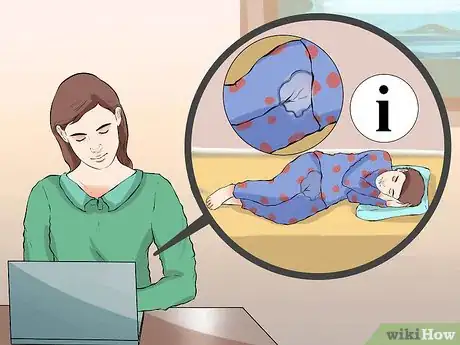
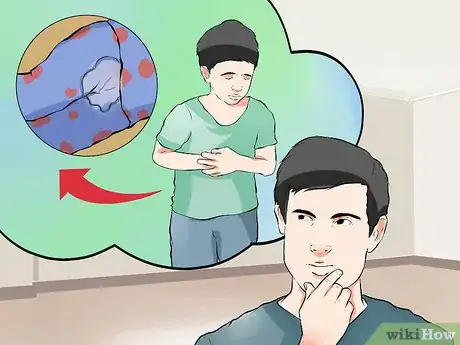
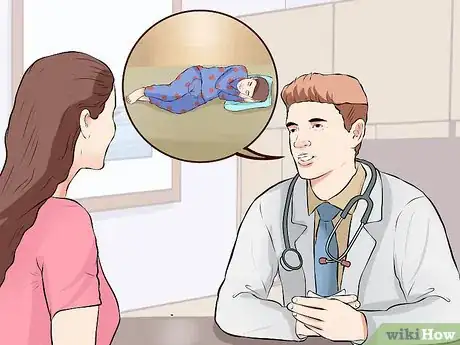
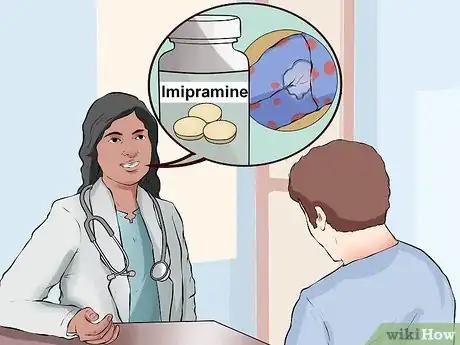
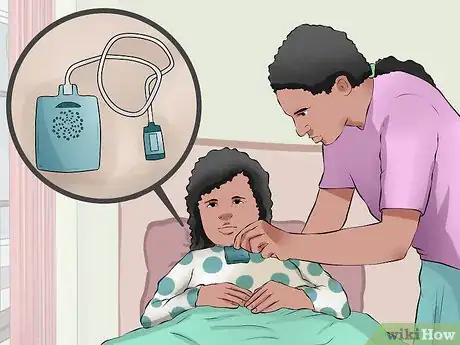
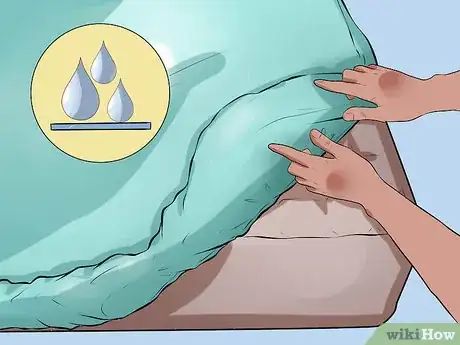
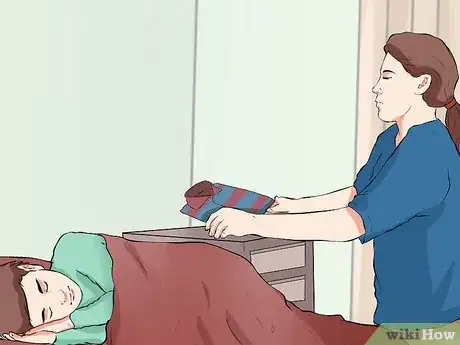
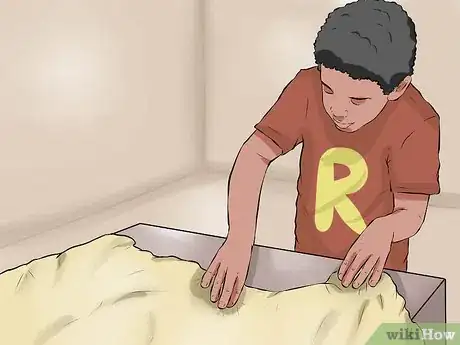
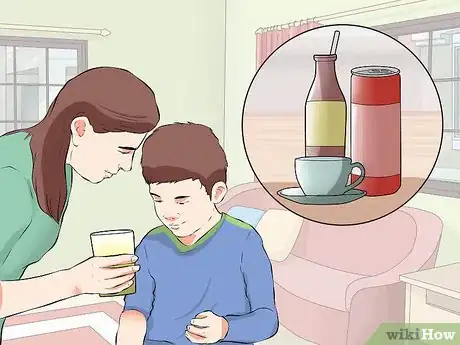
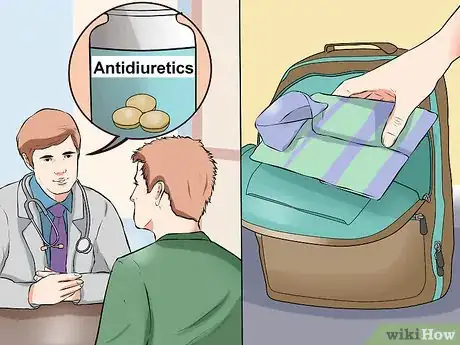
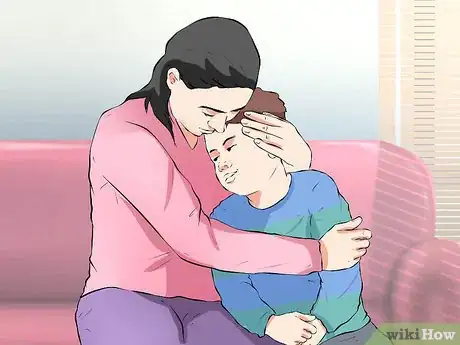
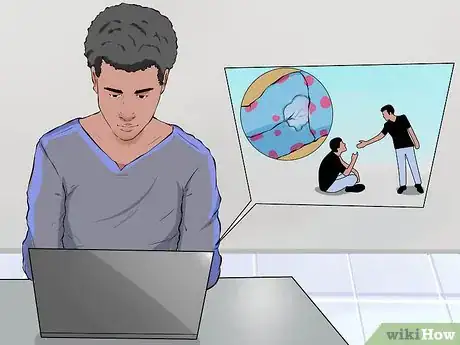
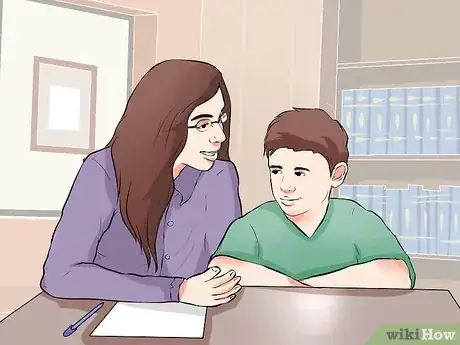
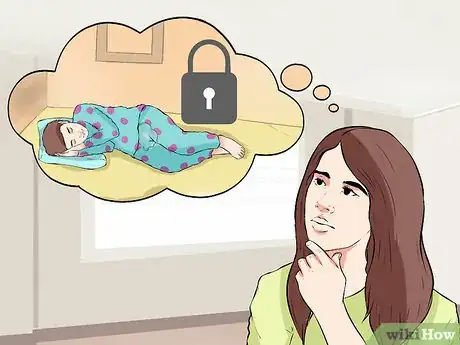
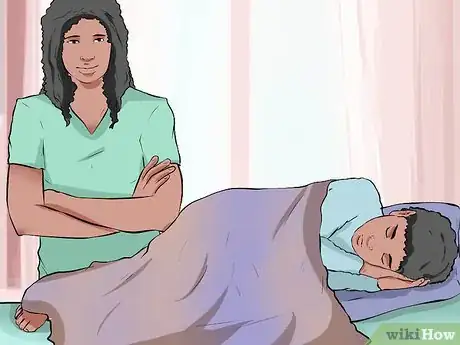
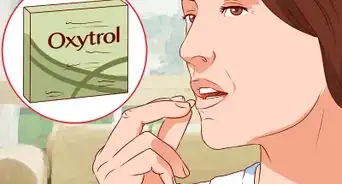

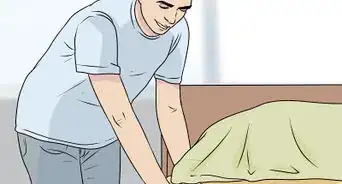
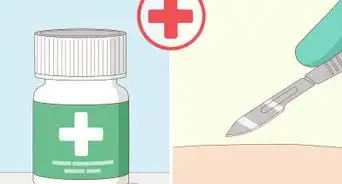
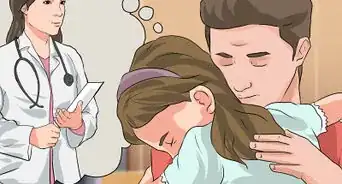

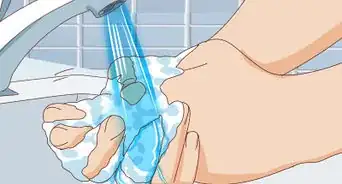
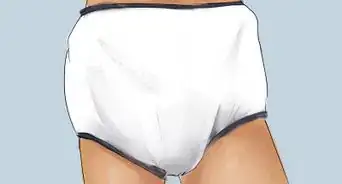



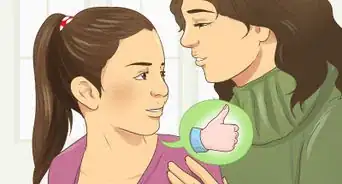











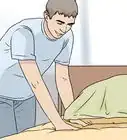
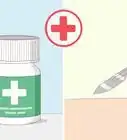



































Medical Disclaimer
The content of this article is not intended to be a substitute for professional medical advice, examination, diagnosis, or treatment. You should always contact your doctor or other qualified healthcare professional before starting, changing, or stopping any kind of health treatment.
Read More...